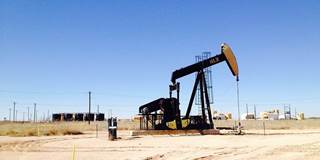The price of oil, often used as a sort of thermometer to measure the health of the world economy, is also a barometer, warning of approaching geopolitical storms. And the security challenges implied by falling oil prices are likely to be more significant than the economic risks.
PRINCETON – The price of oil is often regarded as a sort of thermometer to measure the health of the world economy. What is less often noted is that it can also serve as a barometer – warning of approaching geopolitical storms. Indeed, the dramatic plunge in the price of a barrel of crude – from nearly $150 in June 2008 to around $30 today – is likely to fuel continued upheaval far beyond the world’s energy and commodity markets, with particularly worrying implications for the European Union.

PRINCETON – The price of oil is often regarded as a sort of thermometer to measure the health of the world economy. What is less often noted is that it can also serve as a barometer – warning of approaching geopolitical storms. Indeed, the dramatic plunge in the price of a barrel of crude – from nearly $150 in June 2008 to around $30 today – is likely to fuel continued upheaval far beyond the world’s energy and commodity markets, with particularly worrying implications for the European Union.